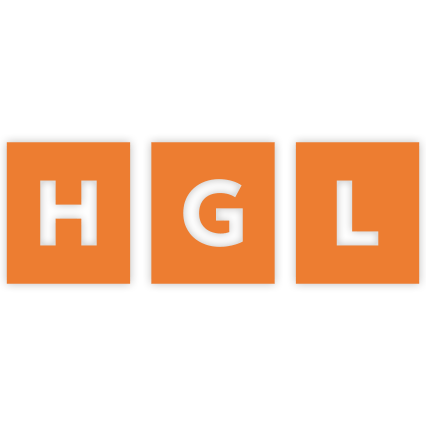

Charlotte Estate Planning Services
Helping Clients in Charlotte, Raleigh, Wilson, and Surrounding Areas Plan for the Future
At Hicks-Guinn Law, we understand that estate planning can be a difficult and emotional process. Our Charlotte estate planning attorney is here to guide you through the process and draft documents to help ensure that your wishes are honored after you have passed. We are committed to providing compassionate and personalized legal representation that addresses the unique details of your situation.
When you consider all that’s involved—from legal requirements to the interests of loved ones—it’s easy to see why working with a dedicated Charlotte estate planning lawyer is invaluable. Our approach combines deep legal knowledge with a personal understanding of Charlotte’s local court systems, including Mecklenburg County, to navigate the complexities of North Carolina estate administration for every client. We serve families at all life stages, helping young parents, retirees, and business owners plan for tomorrow and gain peace of mind today. Each estate plan we build is crafted to address the realities of our community, whether it’s changing property values, multi-generational households, or local tax implications unique to North Carolina.
Our estate planning services include drafting wills, trusts, advance directives, and powers of attorney to meet your needs and communicate your wishes clearly to your beneficiaries and loved ones. If you're seeking an estate planning attorney in Charlotte, look to our firm for elder law services to help plan for Social Security earnings, Medicare, pensions, and management of other assets and property.
Rely on the expertise of a skilled Charlotte estate planning attorney. Contact us or call (888) 373-9699 now to arrange your consultation without delay.
What Is Estate Planning?
Estate planning is the process of creating a plan for managing and distributing your assets after you pass away. It also involves preparing arrangements for your care and the management of your assets if you become incapacitated and are unable to make decisions for yourself. Working with a Charlotte estate planning lawyer helps you address all your needs and create a plan that works under North Carolina law.
Key Components of an Estate Plan with a Charlotte Estate Planning Attorney
In North Carolina, the scope of estate planning often requires attention to both state and federal regulations, and sometimes even to specific requirements set forth by local courts or counties. For residents of Charlotte and Mecklenburg County, for instance, the interpretation of state intestacy rules and probate procedures can directly affect how your estate is settled. Factors such as real estate holdings in uptown Charlotte, joint ownership of property, or blended family structures may add complexity to the planning process. An estate planning attorney in Charlotte who is familiar with these distinctive circumstances can help relieve confusion and minimize unnecessary expenses, while making sure your intentions are reflected clearly throughout your estate plan. This holistic approach helps safeguard your assets not just for immediate transfer, but also for future generations.
Carefully crafted legal documents, such as trusts, can help avoid probate, minimize estate taxes, and ensure that your wishes are followed. A Charlotte estate planning lawyer can advise on which documents may benefit you most, given your unique situation.
Other Important Estate Planning Documents Prepared by a Charlotte Estate Planning Lawyer
A comprehensive estate plan typically involves multiple documents that work together to outline your wishes, beneficiaries, assets, and more. In addition to wills and trusts, a Charlotte estate planning attorney at Hicks-Guinn Law can help you draft the following:
- A living will is a legal document that allows you to make decisions regarding your medical care and life-sustaining treatment if you become incapacitated and unable to make decisions for yourself. In this document, you can specify your preferences about being kept on a ventilator or feeding tube, and whether you wish to receive pain management. A living will only takes effect if you are in a terminal condition or a persistent vegetative state and are unable to express your wishes.
- A financial power of attorney (POA) designates a trusted individual, often known as an agent or attorney-in-fact, to handle your financial matters if you are unable to do so. This may include banking transactions, managing investments, paying bills, filing taxes, buying or selling real estate, and other financial decisions. The scope of authority can be as broad or as specific as you prefer, and powers may be temporary or permanent. The financial POA may take effect immediately or as a "springing" POA, effective only upon your incapacity. These powers end at the principal's death.
- A healthcare power of attorney (HPOA) authorizes a designated agent to make healthcare decisions on your behalf when you are unable. These decisions may include the selection of healthcare providers, medical treatments, end-of-life decisions, and the use of life-sustaining measures. The HPOA is effective only when you are incapacitated and cannot make your own medical decisions, and it ends upon your death unless otherwise specified. After your passing, decisions about the handling of your body or organ donation are usually made by next of kin or by a person appointed in a will, living will, or, if desired, specified in the HPOA.
In Charlotte, these critical documents carry additional weight in real-life situations where families face sudden health crises or difficulties accessing assets. For example, local medical providers or financial institutions might request a review of your appointed agent’s authority before honoring healthcare or financial directives. At Hicks-Guinn Law, our estate planning attorney in Charlotte helps clients ensure these documents are prepared in compliance with North Carolina laws and accepted by local banks, hospitals, and court systems. We also advise on updates for significant life events, such as relocation within North Carolina or the addition of new family members, so your estate plan remains current and effective in all local contexts.
Why Is Estate Planning Important?
Many people mistakenly believe that estate planning is only for the wealthy. In truth, everyone can benefit from having an estate plan in place. It is not solely about distributing your assets—estate planning is also about making sure your wishes are honored and that your loved ones are protected. A Charlotte estate planning attorney can help protect both your assets and your family's well-being.
For trusted legal guidance, reach out to a knowledgeable estate planning lawyer. Call (888) 373-9699 or contact us immediately to schedule your consultation.
How the Estate Planning Process Works
What Sets Us Apart From The Rest?
Hicks-Guinn Law, PLLC is here to help you get the results you need with a team you can trust.
-
Experienced FirmBenefit from the wealth of experience our team brings to your side. In addition to successfully handling numerous cases, Robyn Hicks-Guinn also shares her expertise by instructing and mentoring other legal professionals.
-
Personalized SolutionsWhen you choose our firm, you will receive personalized legal representation. We will take the time to get to know you and work closely with you to develop a strategy tailored to your needs.
-
Flexible ConsultationsWe are flexible and committed to meeting you wherever is most convenient. Whether it's at your home, in a hospital, or through a virtual consultation, we ensure accessibility across the entire state.
-
Every Case Prepared for Court
Every case is meticulously prepared for court, ensuring that our clients receive the best representation and our commitment to achieving optimal outcomes for those we serve.
Ongoing Support from Your Estate Planning Attorney in Charlotte
Throughout the process, our firm emphasizes ongoing communication and education. We update clients on changes in North Carolina statutes and recommend periodic reviews to ensure that each plan remains current with evolving personal circumstances or legal standards. Our commitment extends beyond signing papers—we remain available for future questions and can update your documents as your family grows or as life’s milestones occur. This ongoing partnership with your estate planning lawyer provides real peace of mind, knowing that your legacy and loved ones are protected in accordance with the laws and practices of the Charlotte area.
The Advantages of Working with a Charlotte Estate Planning Lawyer


-
From the first meeting Robyn was very knowledgeable, professional and empathetic which I highly value. Robyn and team genuinely cared about making sure I got the information that I needed to make the best decision.- Amara R.
-
I had a sensitive matter that needed to be handled quickly and efficiently and they took care of my needs. I would recommend their services anytime!- Tedra B.
What Is the Difference Between a Will & a Trust in Charlotte?
While both documents are foundational estate planning tools, understanding how each interacts with North Carolina law helps clarify which may best fit your needs. Residents of Charlotte may encounter challenges unique to regional property law, particularly with local real estate or small business interests. Knowing which document allows for maximum flexibility and privacy for your specific situation offers peace of mind that your legacy will be preserved. Our team at Hicks-Guinn Law reviews each client’s circumstances and provides education about when a will, trust, or both is most appropriate for the natural diversity of family types and wealth seen throughout Mecklenburg County. Connect with a Charlotte estate planning attorney to receive guidance tailored to your needs.
Both wills and trusts are important estate planning documents, but they serve different purposes. If you are working with a Charlotte estate planning attorney, you'll receive guidance on the ideal choices for your situation based on North Carolina laws and your specific needs.
The Role of a Will with a Charlotte Estate Planning Lawyer
The will’s role extends beyond distributing personal belongings; in North Carolina, the probate process managed at the Mecklenburg County Courthouse is used to “prove” the will’s validity. Depending on asset types and family structures, some estates may move efficiently through probate, while others can encounter delays. Our attorney reviews your personal and financial situation to suggest the best approach for a seamless transfer of assets and even discusses the possible impact of elective share rights or statutory allowances for surviving spouses and children under state law. We aim to demystify these processes for Charlotte families who wish to preserve both their assets and their privacy.
A will is a legal document that:
- Names an executor to manage your estate
- Allows you to name a guardian for your minor children
- Specifies beneficiaries to receive your assets
- Appoints a trustee to manage assets for your beneficiaries
A will only takes effect after you pass away. It must go through probate, which is a court-supervised process for distributing your assets. During probate, your will becomes a matter of public record, allowing anyone to see what you owned and who inherited your assets.
Understanding Trusts with a Charlotte Estate Planning Lawyer
A trust is a legal arrangement that:
- Names a trustee to manage your assets
- Specifies beneficiaries to receive your assets
- Allows you to avoid probate
- Maintains your privacy
A trust can be revocable or irrevocable. A revocable trust can be changed or revoked at any time, whereas an irrevocable trust cannot. However, an irrevocable trust can offer certain tax benefits based on North Carolina law. Your Charlotte estate planning attorney can help you choose the right type for your needs.
A trust can be effective as soon as it is created, meaning your assets may be managed by the trustee if you become incapacitated. It also allows your assets to be distributed to your beneficiaries privately, without going through probate. Speak with a Charlotte estate planning lawyer to see how a trust might benefit your situation.
Why Should You Get a Will from a Charlotte Estate Planning Lawyer?
Many individuals choose a will over a trust for various reasons. A primary reason is the simplicity and cost-effectiveness of creating a will. Preparing a will is generally more straightforward than establishing a trust, making it a preferred option for those with smaller estates or more direct distribution intentions.
Wills are especially important for nominating guardians for minor children—a crucial consideration for parents that is not directly addressed by a trust. Additionally, because wills are subject to probate, some individuals take comfort in the judicial oversight, which helps ensure their estate is distributed as specified. This added review can be valuable in cases where disputes among heirs or beneficiaries are anticipated. Your Charlotte estate planning attorney can help you prepare a will that meets both state requirements and personal objectives.
When Should You Consider Setting Up a Trust with an Estate Planning Lawyer in Charlotte?
Individuals may choose to establish a trust for several reasons. Trusts, which can be managed by an estate planning attorney in Charlotte, offer distinct advantages over wills—particularly in terms of privacy, avoiding probate, and in some cases, tax benefits.
Charlotte residents sometimes find trusts especially beneficial when they own property in multiple cities or anticipate circumstances where privacy or family dynamics are sensitive. For example, North Carolina trust law allows for flexibility with revocable and irrevocable trusts, giving you more control in tailoring your estate plan to your family’s exact needs. If you are unsure how state inheritance tax laws or legacy planning rules may affect your unique circumstances, our firm is prepared to explain these local nuances in detail and help you decide if a trust is the right solution with guidance from a Charlotte estate planning lawyer.
An irrevocable trust in North Carolina, once established, cannot be altered. It provides a level of certainty about the future of your estate that many find reassuring. This type of trust also plays a critical role in estate tax planning, potentially shielding assets from taxation upon the trustor's passing. Consulting with an experienced estate planning attorney in Charlotte can help you determine whether an irrevocable trust fits your specific needs.
A revocable trust, also known as a living trust, is a flexible estate planning tool that enables the trustor (the person who creates the trust) to maintain control over their assets during their lifetime. Unlike an irrevocable trust, a revocable trust can be amended, altered, or fully revoked by the trustor at any point while they are living and competent. This type of trust typically becomes irrevocable upon the trustor's death. It is wise to consult with a Charlotte estate planning attorney when considering a living trust.
Benefits of a Revocable Trust with an Estate Planning Attorney in Charlotte
For those living in places like Charlotte or Mecklenburg County, a revocable trust offers solutions for managing real estate, bank accounts, and investments with minimal court intervention. It is also an effective method for avoiding the often-lengthy Mecklenburg County probate, which can otherwise result in delays for beneficiaries and potential exposure to public record searches. Our legal team informs clients about the requirements for funding a trust with property in multiple locations, and what steps may be needed to retitle assets such as business interests or out-of-state real estate. Planning ahead can also aid in continuity of business operations and seamless support for loved ones unable to access certain assets without a court order. Your Charlotte estate planning attorney can guide you through each of these considerations.
Additionally, because trusts bypass the probate process, beneficiaries can access their inheritance more quickly, without the public scrutiny or legal hurdles associated with probate court. Trusts are especially beneficial for those with complex estate planning needs, such as owning property in multiple states or desiring to earmark funds for specific purposes over a prolonged period. Working with an estate planning attorney in Charlotte can help clarify when trusts are most useful for your family.
Probate and Estate Administration in Mecklenburg County
The probate process is a court-supervised proceeding required to validate a will, settle debts, and distribute assets after an individual’s passing. In Mecklenburg County, probate is overseen by the Clerk of Superior Court and typically begins when the executor files the will and a petition for probate. Throughout the process, the court ensures that taxes and claims against the estate are paid before assets are distributed to heirs. It’s important to note that probate can be public, time-consuming, and may involve several local filings. Our firm navigates these complexities by managing necessary paperwork, communicating with court officials, and keeping clients informed at every step. We understand local court rules and timelines, which helps smooth the process for personal representatives, often easing the burden on grieving families.
Minimizing Probate with a Charlotte Estate Planning Lawyer
With the assistance of an experienced Charlotte estate planning lawyer, you can minimize the impact of probate through proper planning, such as establishing certain types of trusts or designating beneficiaries on accounts to bypass probate proceedings. Our proactive counsel includes preparing clients for what to expect at the Mecklenburg County Courthouse, highlighting best practices for avoiding common pitfalls, and providing support from start to finish. We emphasize both process education and advocacy to help you fulfill your legal duties and protect your loved ones with the guidance of an estate planning attorney in Charlotte.
Get the support you need from our skilled estate planning lawyer. Reach out at (888) 373-9699 now to book your no-cost initial consultation.
Frequently Asked Questions About Estate Planning in Charlotte
How often should I update my estate plan with a Charlotte estate planning attorney?
We recommend reviewing your estate plan with a Charlotte estate planning attorney every three to five years, or sooner if you go through major life changes like marriage, divorce, the birth of a child, or the acquisition of significant assets. North Carolina law and Mecklenburg County procedures can change over time, and periodic reviews ensure that your documents comply with current legislation and accurately reflect your wishes. At Hicks-Guinn Law, PLLC, we stay engaged with clients for the long term, helping to adjust your plan whenever life brings new circumstances, or when any major legal or tax regulation shifts occur at the state or local level.
What assets are subject to probate in North Carolina?
In North Carolina, assets that are titled solely in your name and without a designated beneficiary generally pass through probate. Examples include personal real estate, bank accounts, vehicles, and investment accounts without joint ownership or transfer-on-death designations. However, jointly owned property, accounts with beneficiaries (like life insurance or retirement funds), and certain trust assets may bypass probate entirely. Mecklenburg County’s probate court will assess each asset, so a comprehensive estate plan can maximize assets that pass outside probate, simplifying the process for your heirs and saving time and expense. Consult a Charlotte estate planning attorney for analysis of your individual assets.
What happens if I die without an estate plan?
If you pass away without an estate plan in Charlotte, your assets will be distributed under North Carolina’s intestacy laws. This means the state—using rules set by statute—will decide who inherits your assets and in what proportions, often resulting in distributions that do not match your intentions. The process can take longer, lead to additional court involvement, and may cause conflict among surviving family members. Consulting with a qualified estate planning attorney in Charlotte at Hicks-Guinn Law, PLLC helps ensure that you, not the state, determine how your assets are divided, minimizing uncertainty and protecting those you care about most.
To learn more about our estate planning services in Charlotte, Raleigh, Wilson, and beyond, call (888) 373-9699 to schedule an initial consultation with an estate planning attorney or lawyer in Charlotte.